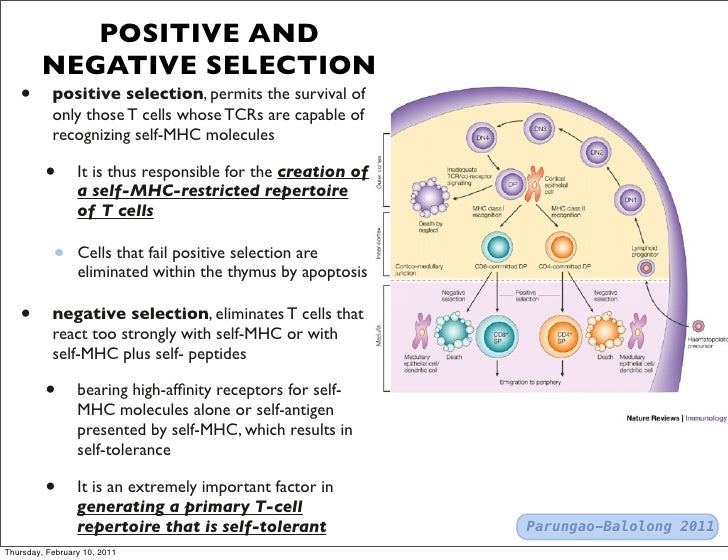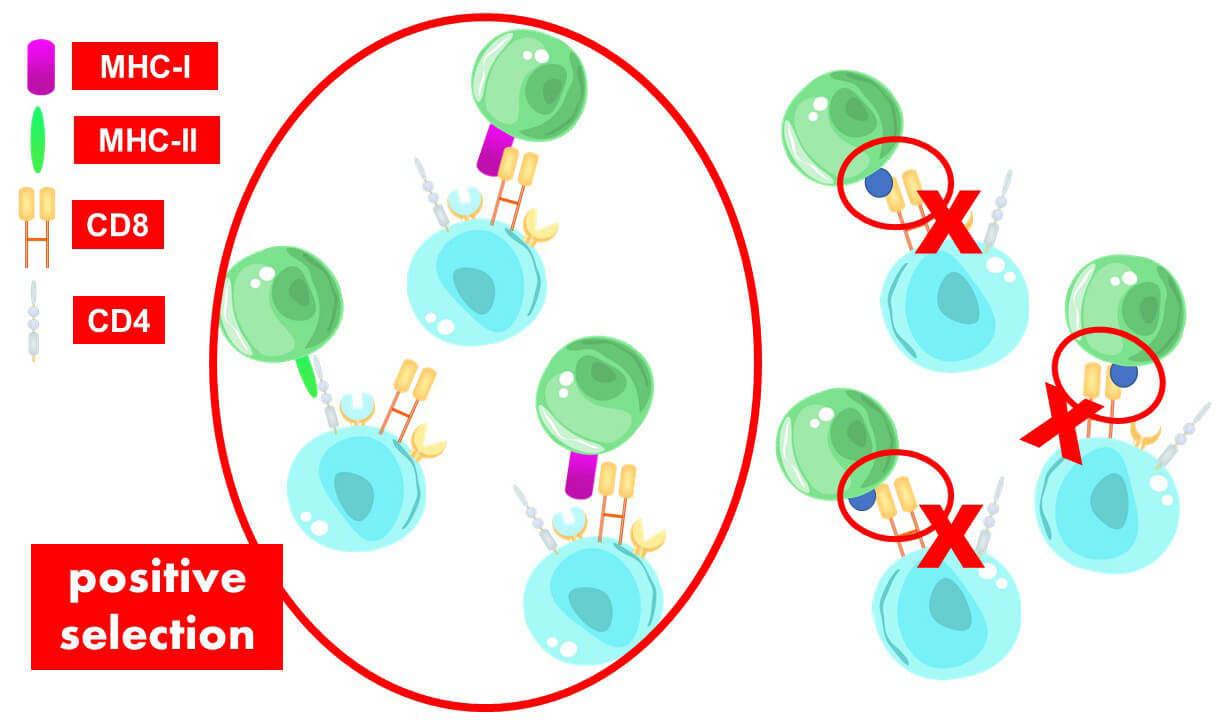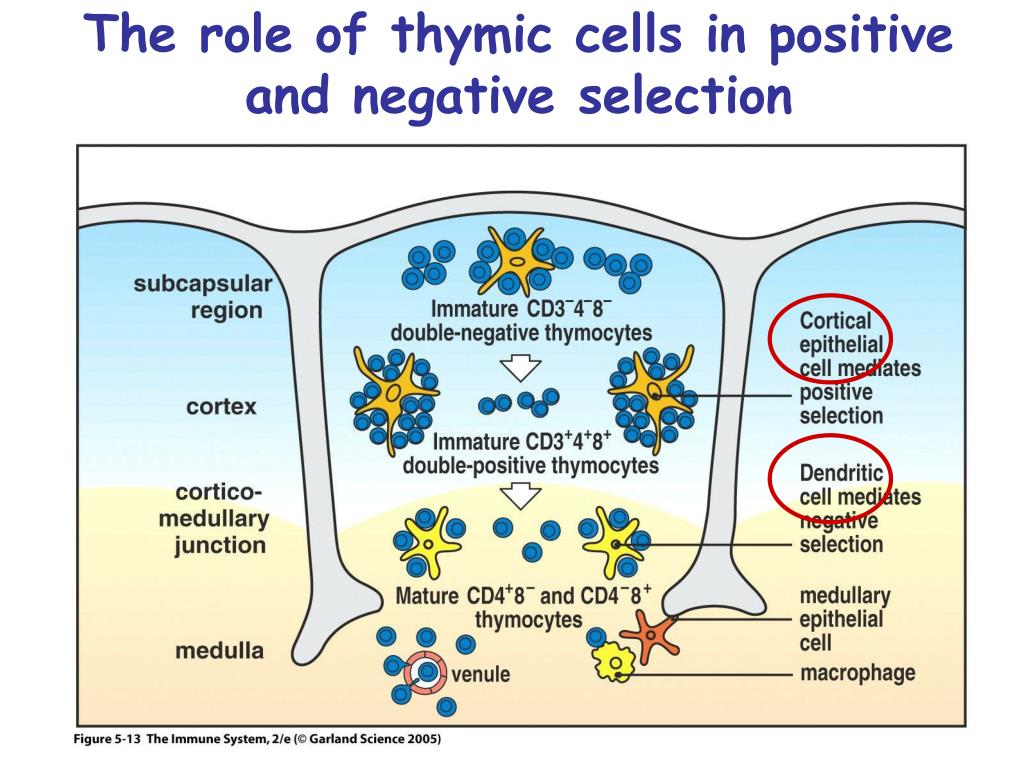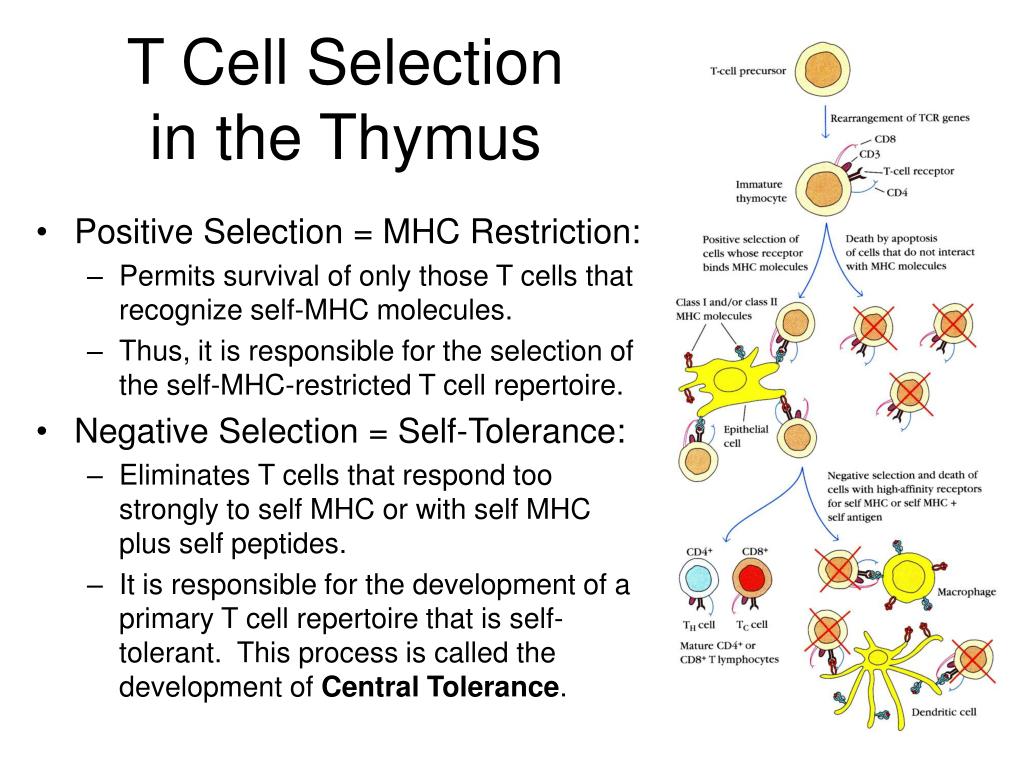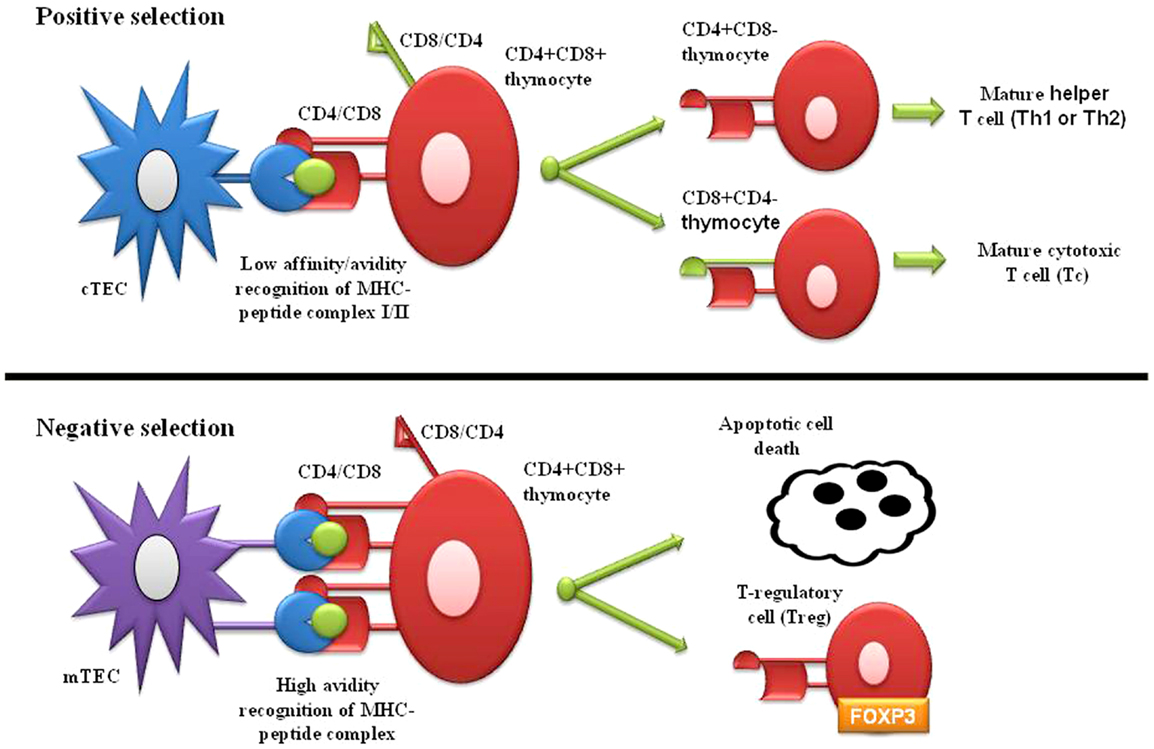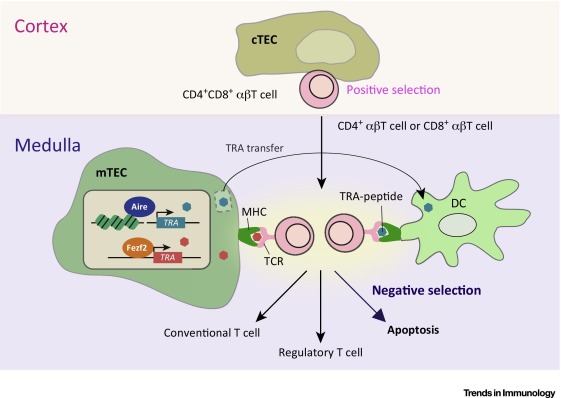Negative And Positive Selection Of T Cells

Immune response hinges on the precise education of T cells. A defective T cell education system can lead to autoimmunity or immunodeficiency, demanding constant research and vigilance.
This article urgently addresses the vital processes of negative and positive selection in T cell development. These mechanisms, occurring in the thymus, ensure that only T cells capable of recognizing and responding appropriately to foreign antigens while remaining tolerant to self-antigens are released into the periphery.
The Thymic Crucible: Where T Cells are Forged
T cell development begins in the bone marrow but reaches maturity in the thymus. The thymus, located in the upper chest, acts as the central processing unit for T cell education. Within the thymus, developing T cells, known as thymocytes, undergo rigorous selection processes.
Positive Selection: Recognizing the Good
Positive selection is the first critical checkpoint. It ensures that T cells can recognize and bind to major histocompatibility complex (MHC) molecules. MHC molecules present peptide antigens on the surface of cells, acting as the signal flag for T cell recognition.
Only thymocytes that can weakly bind to self-MHC molecules displaying self-peptides survive. Those that fail to bind at all receive a death signal, called apoptosis, and are eliminated.
This process ensures that only T cells capable of recognizing antigen presented by MHC molecules will mature. Positive selection determines the T cell's MHC restriction, meaning whether it will interact with MHC class I or MHC class II molecules.
Negative Selection: Eliminating the Dangerous
Following positive selection, thymocytes proceed to negative selection. This stage is paramount in preventing autoimmunity.
During negative selection, thymocytes encounter a wide array of self-antigens presented by antigen-presenting cells (APCs) within the thymus. Thymocytes that bind too strongly to these self-antigen/MHC complexes are eliminated via apoptosis.
This process removes T cells that are potentially self-reactive and could attack the body's own tissues. The Autoimmune Regulator (AIRE) protein plays a crucial role in negative selection.
AIRE facilitates the expression of a wide range of tissue-specific antigens in the thymus. This broad presentation allows for the elimination of T cells that could react to antigens found only in specific organs.
The Consequences of Selection Failure
Defects in either positive or negative selection can have severe consequences. Failure of positive selection leads to immunodeficiency, as T cells cannot effectively recognize and respond to foreign antigens.
On the other hand, a breakdown in negative selection can result in autoimmunity. Self-reactive T cells escape thymic deletion and attack the body's own tissues, leading to autoimmune diseases such as type 1 diabetes, rheumatoid arthritis, and multiple sclerosis.
Recent Advancements and Ongoing Research
Recent research has focused on manipulating T cell selection to treat autoimmune diseases and cancer. Scientists are exploring methods to enhance negative selection to eliminate self-reactive T cells in autoimmune conditions.
Conversely, efforts are underway to engineer T cells that can effectively recognize and attack cancer cells. These modified T cells, known as CAR-T cells, require precise engineering to ensure they target cancer cells without causing excessive damage to healthy tissues.
Studies are also investigating the role of specific genes and signaling pathways involved in T cell selection. Identifying these molecular mechanisms is crucial for developing targeted therapies to modulate T cell development and function.
Who: Immunologists, cell biologists, and pharmaceutical researchers are actively involved. What: Research focuses on understanding and manipulating T cell selection. Where: Research is conducted in universities, research institutes, and pharmaceutical companies worldwide. When: This is an ongoing area of intense research. Why: To develop effective treatments for autoimmune diseases, cancer, and immunodeficiencies. How: Through basic research, clinical trials, and the development of novel immunotherapies.
The Future of T Cell Therapies
Understanding and manipulating T cell selection holds immense promise for treating a wide range of diseases. Future research will likely focus on developing more precise and personalized therapies that can harness the power of the immune system to fight disease.
Further investigation into the intricacies of positive and negative selection is crucial. This continued research is key to unlocking new strategies for preventing and treating devastating diseases linked to T cell dysfunction.
The development of novel immunotherapies will depend on a thorough understanding of these fundamental processes. The fight against autoimmune diseases and cancer relies on the continued dedication of scientists exploring the complex world of T cell development.

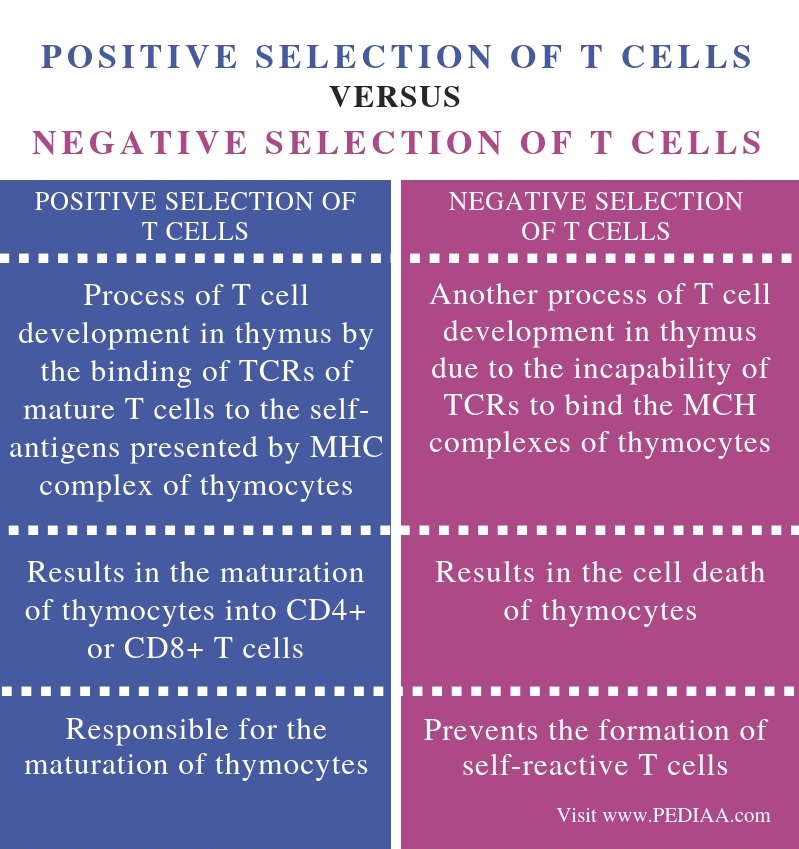

![Negative And Positive Selection Of T Cells [Immune System] I need help understanding this image explaining T-cell](https://i.gyazo.com/54ee8194a7cfa7f9d68ed668bfc04b2e.jpg)
